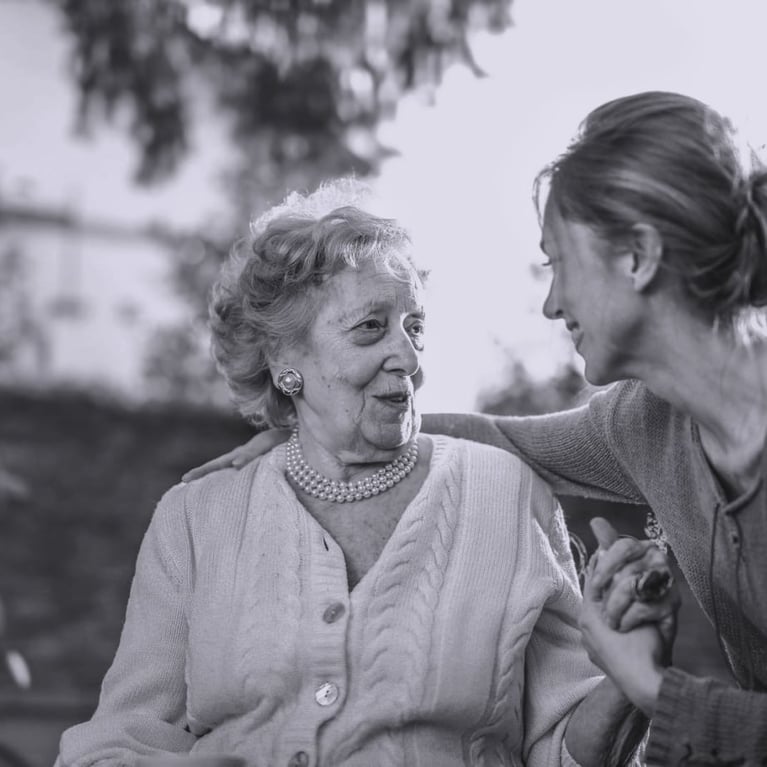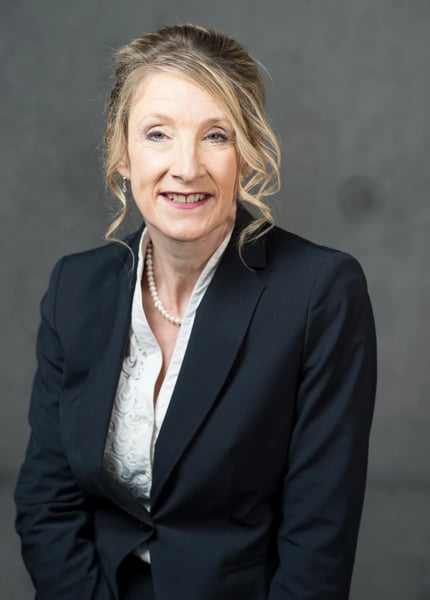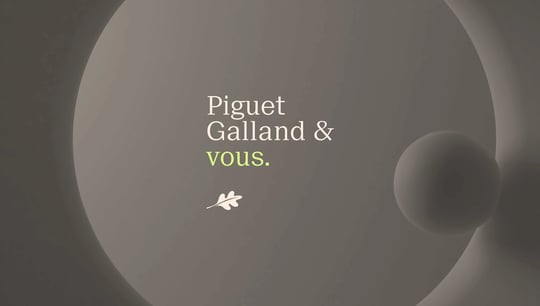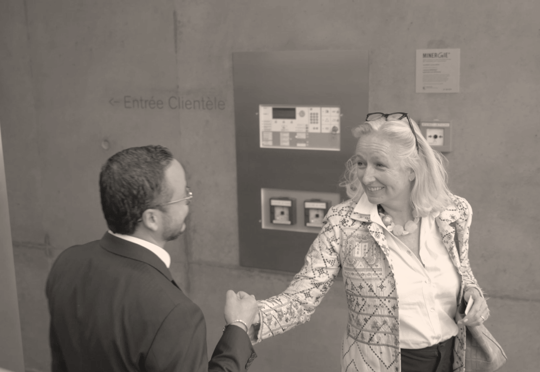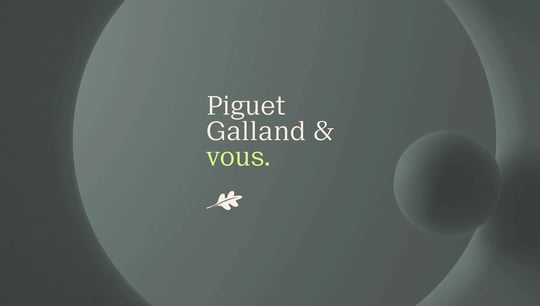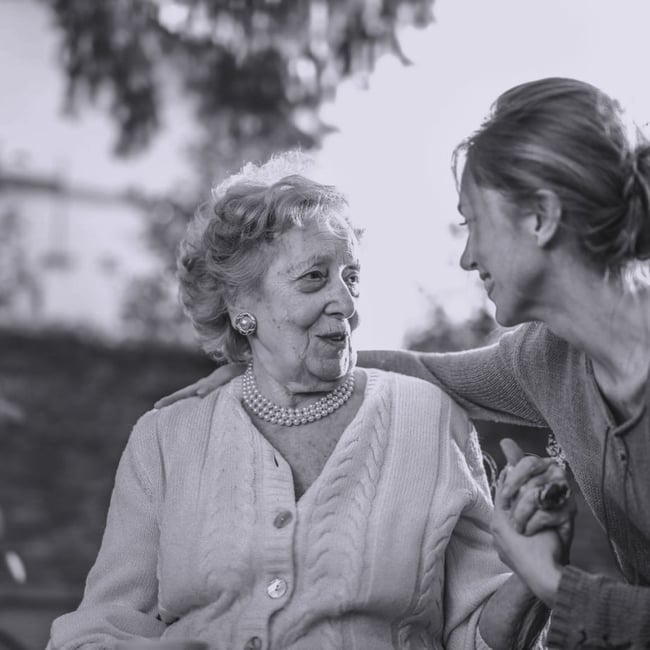
5 questions in order to improve your financial wellness for a happy retirement
A recent report by the US Society of Actuaries reveals that anxiety regarding future levels of retirement income has increased in the last seven years, with more than 70% of those consulted now expressing concerns about their ability to finance potential costs of long-term healthcare and nursing in old age. My personal experience demonstrates that such concern is particularly relevant to women; do you know whether the forecast for your financial future is sunny, stormy, or uncertain?
The subject of pensions and retirement income is so complex and personal that many of us take the attitude of the ostrich, with our head firmly in the ground, just hoping that everything will work out for the best. The more I discuss the subject with women, helping them to understand the implications for them and their families, the more I feel the urge to extend my reach and share my insights with as many people as possible.
As women, we learn from an early age the importance of ensuring our personal security (not speaking to strangers in the street, for example), as we grow up we may learn rudimentary self-defence, we wear a helmet when cycling or skiing, we visit doctors regularly to check our health, we are vigilant for the safety of small children and for that of elderly relatives… yet as adults few of us take the essential steps towards safeguarding our own financial security.
In this article, I share with you five questions which you may work through, and review regularly, in order to improve your financial wellness for a happy retirement.
“An investment in knowledge pays the best interest.” Benjamin Franklin
Women are recognised today as holding decision-making responsibility for approximately 80% of household purchases, we have longer life expectancy than men by five years (according to the United Nations, 33% of women aged 65 can now expect to live to the age of 90, compared with 20% of men), yet despite the considerable progress made in the field of equality, we are the first potential victims of the pension crisis. Women not only accrue less retirement savings than men, so generating a lower potential retirement income, but with our greater longevity, we actually require an income for longer, often with the need to cover costly health issues associated with extreme old age. 56% of British people save inadequately for retirement; in fact, women save 50% less towards retirement than men (according to research by Scottish Widows), often due to lower salaries, career breaks, part-time roles, “trailing spouse” obligations, and periods of unemployment or self-employment.
I observe that many people today are so busy managing their daily lives (from work, to family, to home and hobbies), that they don’t take time to reflect on the lifestyle they wish to enjoy later in life, so that they may work towards a predefined retirement goal. The poem “Warning” by Jenny Joseph, which I learnt to recite for a drama class in my childhood, offers a light-hearted approach to the subject…
“When I am an old woman, I shall wear purple
With a red hat which doesn’t go, and doesn’t suit me.
And I shall spend my pension on brandy and summer gloves
And satin sandals, and say we’ve no money for butter…”
This poem is probably the most well-known work by Jenny Joseph (who passed away on January 8th 2018 aged 85); when writing it in 1961, she was already aware that a pension might offer an insufficient income to truly live comfortably, but she couldn’t possibly have imagined the ways in which retirement would be transformed in the years to come.
Due to demographic and socio-economic factors, the very sustainability of pensions is being challenged; in Switzerland, the number of people aged over 65 for every 100 people of working age (20-64) increased from 21 in 1975 to 29 in 2015 and is projected to reach 55 by 2050. Life expectancy at retirement age has increased by 50% since 1950; pensions now pay out for approximately 22 years on average for women (with a projection of 25 years for girls born in 2018), compared to an average duration of just 15 years for women who retired in 1950). The problem is that pension structures are not evolving at the same pace.
As the strength of state pensions seems questionable, private pension cover is becoming increasingly important. According to the OECD, in Switzerland, those entering the labour market today, and achieving a full career of retirement savings, are likely to receive an annual retirement income corresponding to just 45% of their equivalent annual salary earnings when working. Developing awareness about pensions and retirement is a priority for governments and institutions around the world; the referendum on the subject in Switzerland last year rejected change, so Switzerland remains one of the few countries in the world where women may still retire younger than men (currently at 64 years for women compared to 65 for men), despite the negative impact on their pension savings which this implies.
Data published by the U.S. Department of Health and Human Services, indicates that 33% of women aged over 65 are widows (a minority of 45% are married). In the US, as elsewhere in the world, a widow would typically receive a survivor’s pension corresponding to just 50% of her late husband’s pension income (substantially less if she was younger than him by 15 years or more). As the initial pension income of the husband would typically correspond to a maximum of 60% of his earnings, this potentially leaves the widow with just 30% of her late husband’s salary to survive on, unless of course she has other sources of income. For married couples, a single career and a single retirement fund for two may be a choice, but with divorce rates high it could be a risky one; a recent report by Scottish Widows reveals that in over 70% of UK divorces pension funds are ignored, potentially leaving one of the partners with a significant shortfall in retirement (however it is important to note that in certain countries, such as Switzerland, pension funds are systematically taken into account during divorce proceedings).
After the busy years of family life and intense working times, we should be in a position to fully enjoy the leisure time available to us as we progress in age, but, understandably, running out of money in retirement is a concern to the majority of workers today.
There is every reason for women to be particularly concerned; in Europe, retirement income for women, from state and workplace pensions, was on average 39% lower than that for men in 2017 (Eurostat). I personally know at least two women who have retired then returned to full-time work due to financial insecurity. As the future looks bleak, many people are working longer; a report by Prudential in the USA indicates that currently 14% of women, and 20% of men are working beyond the age of 65. However, in many cases there isn’t even a possibility to continue working; according to a recent report by Aegeon, 39% of the fully retired said they had actually stopped working earlier than planned due to ill-health or job loss.
The majority of workers today will have contributed to various pension schemes by the time they retire, having worked for multiple employers, in many cases in several different countries. Keeping track of pension savings is a challenge in itself; a survey by Aegeon reveals that more than 6 million workers may have already lost sight of a pension in the UK. For couples, calculations may become extremely complex, and, in many cases, periods of expatriation augment the risk of retirement savings becoming insufficient later in life.
The combination of these factors is putting women at a greater risk of old-age poverty; the European Institute for Gender Equality demonstrated in 2015 that financial insecurity also makes women more likely to stay with abusive partners.
Have you ever noticed on airplanes how the flight attendants always remind passengers that, if the oxygen masks drop down during the flight, each of us should deploy our own mask first, before helping those around us? This is because we can only help someone else to put on his/her oxygen mask if we have stabilised our own breathing first. The same is true with our finances; we can only help, care for and support others if we have taken care of our own financial security first.
What steps should you take now to improve your financial wellness during your retirement? In order to determine the key information you need to anticipate your future retirement income, here are five questions you should work through, with your carefully selected wealth advisor, and know the answers to, at every stage of your adult life:
- What income would I actually require to live comfortably, and in order to cope with any potential additional costs of healthcare and retirement?
- Which will be my available sources of income when I and/or my partner retire (taking into account policies held in different countries if relevant)?
- What income is it realistic to expect from the available retirement savings and assets in absolute (time-adjusted) terms and as a percentage of income prior to retirement?
- How autonomous am I with regards to retirement income; what would the impact of a divorce or separation be?
- How would my income change if my partner were to pass away before me?
All of these questions relate to our assessment of financial security; in other terms, the extent to which we can ensure that our money works for us to cover our living expenses when we retire. We may delegate responsibility for our accounts to a partner or simply put personal investment management at the bottom of our priorities. However, managing the money we work so hard to earn, and protecting the wealth we build progressively, is now absolutely fundamental, since we will be working longer (and harder), as we live further into old-age,
During my career, I have spent more than 25 years working in international business, finance and strategy. From piloting multinational teams, to supporting small business owners, I have come to realise that, in the current economic climate, we tend to invest more and more of our precious time and energy contributing to the business plans of the companies where we work, yet take little or no time to ensure that the money we actually earn is working hard for us in return. I believe that, as women, it is more essential now than it ever was in the past for us to focus on achieving financial security for ourselves and for our families.
